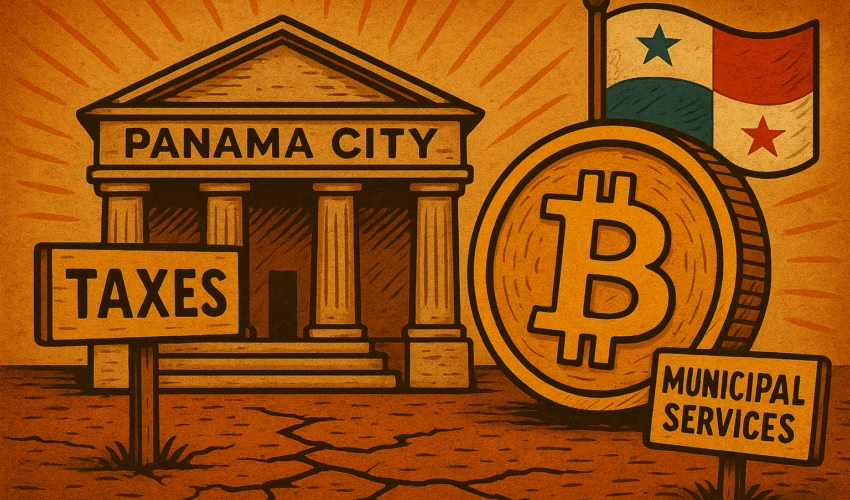Mayor Announces Plan to Enable Bitcoin, Ethereum, and Stablecoin Payments
Panama City will begin accepting cryptocurrencies for tax payments and various municipal services, including bus fares, permits, and local fees, according to an April 15 announcement by the city’s new mayor, Mayer Mizrachi.
Once crypto-to-fiat infrastructure is fully implemented, residents will be able to pay using Bitcoin (BTC), Ethereum (ETH), Circle’s USDC, and Tether’s USDT, Mizrachi confirmed on the social platform X.
“This is a long overdue update to bring Panama City into the modern financial world,” Mizrachi stated, adding that prior administrations had failed to push through similar efforts due to legal restrictions requiring all payments to be denominated in U.S. dollars.
🇵🇦 Panama City council has just voted in favor of becoming the first public institution of government to accept payments in Crypto.
Citizens will now be able to pay taxes, fees, tickets and permits entirely in crypto starting with BTC, ETH, USDC, USDT@APompliano @aantonop…
— Mayer Mizrachi (@Mayer) April 15, 2025
The current administration has sidestepped that obstacle by partnering with a local bank that will automatically convert crypto payments into USD, eliminating the need for new legislation.
Panama Joins Global Wave of Crypto-Friendly Municipalities
Panama City now joins a growing list of forward-thinking jurisdictions worldwide embracing digital asset payments for public services. The trend reflects increasing government interest in blockchain adoption, payment innovation, and treasury diversification.
-
Colorado, U.S., began accepting crypto for taxes in September 2022, with instant conversion to fiat.
-
Lugano, Switzerland, adopted BTC for tax and city fees in 2023 and has since earned a reputation as a “Bitcoin city.”
-
Vancouver, Canada, voted in December 2024 to become a “Bitcoin-friendly city”, exploring BTC integration for taxes and local finance.
-
In North Carolina, a bill introduced on April 10 could soon allow residents to pay state taxes using crypto, if passed.
These initiatives are often designed to attract fintech investment, streamline payment systems, and position cities as hubs for digital innovation.
Technical Implementation: Conversion Without Legal Reform
What sets Panama City’s approach apart is its use of automatic conversion partnerships to comply with existing currency laws. While the U.S. dollar remains the legal tender, crypto will serve as a payment medium, with the municipality receiving fiat-equivalent value.
“We don’t need to change the law, just the rails,” Mizrachi emphasized.
This mirrors models already used in jurisdictions like Colorado, where the government is insulated from crypto price volatility, while residents enjoy more flexible payment options.
Final Thoughts: A Test Case for Crypto in Latin America
Panama City’s move could serve as a template for other Latin American municipalities, many of which are exploring digital asset adoption amid rising concerns over currency devaluation, inflation, and economic modernization.
As crypto infrastructure improves and legal frameworks evolve, local governments may increasingly treat Bitcoin and stablecoins not just as speculative assets, but as functional tools for public finance.
Whether Panama City’s initiative proves to be efficient, secure, and scalable remains to be seen—but it adds momentum to the global push for crypto integration in civic systems.












